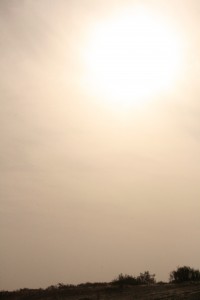 Travel dislodges us from the comfort of the known. It forces us to encounter and somehow process, if only for the length of the journey, different ways of being in the world. What happens to the traveler during this encounter with the unfamiliar? This course will look at the responses of various writers to the worlds they came upon while traveling. Readings will include short selections from Margaret Mead, Marco Polo, Joshua Slocum, Henry James, Roland Barthes, Edward Said, Mary Kingsley, Wade Davis, Gertrude Bell, and Bruce Chatwin.
Travel dislodges us from the comfort of the known. It forces us to encounter and somehow process, if only for the length of the journey, different ways of being in the world. What happens to the traveler during this encounter with the unfamiliar? This course will look at the responses of various writers to the worlds they came upon while traveling. Readings will include short selections from Margaret Mead, Marco Polo, Joshua Slocum, Henry James, Roland Barthes, Edward Said, Mary Kingsley, Wade Davis, Gertrude Bell, and Bruce Chatwin.
Meets: Saturday, April 9, 2011 – Saturday, May 14, 2011
10:00 AM to 12:00 PM at Richard Hugo House
General: $230.00
Members of Hugo House: $207.00
Click here for information on registration and financial aid.
Required Readings
Week 1 – Early Encounters and Observations
Rustichello da Pisa, The Travels of Marco Polo (1298), chapters 36 and 37 of Book I, chapters 8 and 24 of Book II, and chapters 2, 3, and 45 of Book III (based on the Dorset/Everyman’s edition)
Week 2 – Travel Writing and Colonialism
Mary Kingsley, Travels in West Africa (1897), introduction and chapters I and XXII
Gertrude Bell, Syria: The Desert and the Sown (1907), chapter I
Edward Said, Orientalism (1978), introduction (pages 1-28)
Week 3 – Solo Travel and Self-Exploration
Joshua Slocum, Sailing Alone Around the World (1899), chapters 7-9
Wade Davis, One River: Explorations and Discoveries in the Amazon Rain Forest (1996), chapter 9, “Among the Waorani” (pages 270-295)
Week 4 – Travel as Cultural Critique
Henry James, The American Scene (1907), chapter 13 (“Charleston,” pages 395-421)
Margaret Mead, Coming of Age in Samoa (1928), chapters 1-3
Week 5 – Truth and Fiction in Travel Reportage
Lucian, True History (2nd century AD), Introduction and Book I
Bruce Chatwin, In Patagonia (1977), chapters 1, 14, 49, 56, and 73
Week 6 – The Writer on Holiday
Roland Barthes, “The Writer on Holiday” (from Mythologies, 1957)
To come…
(discussion questions will be posted here a few days before each meeting)